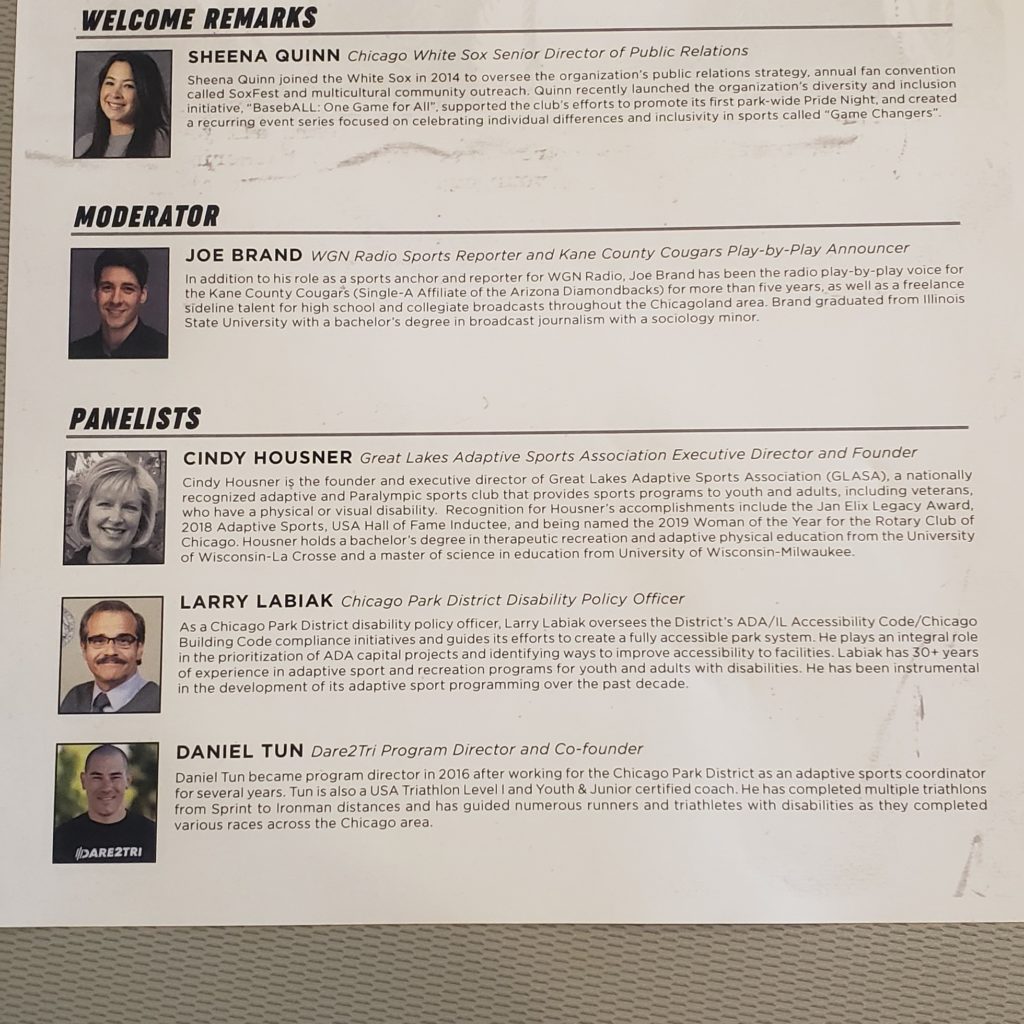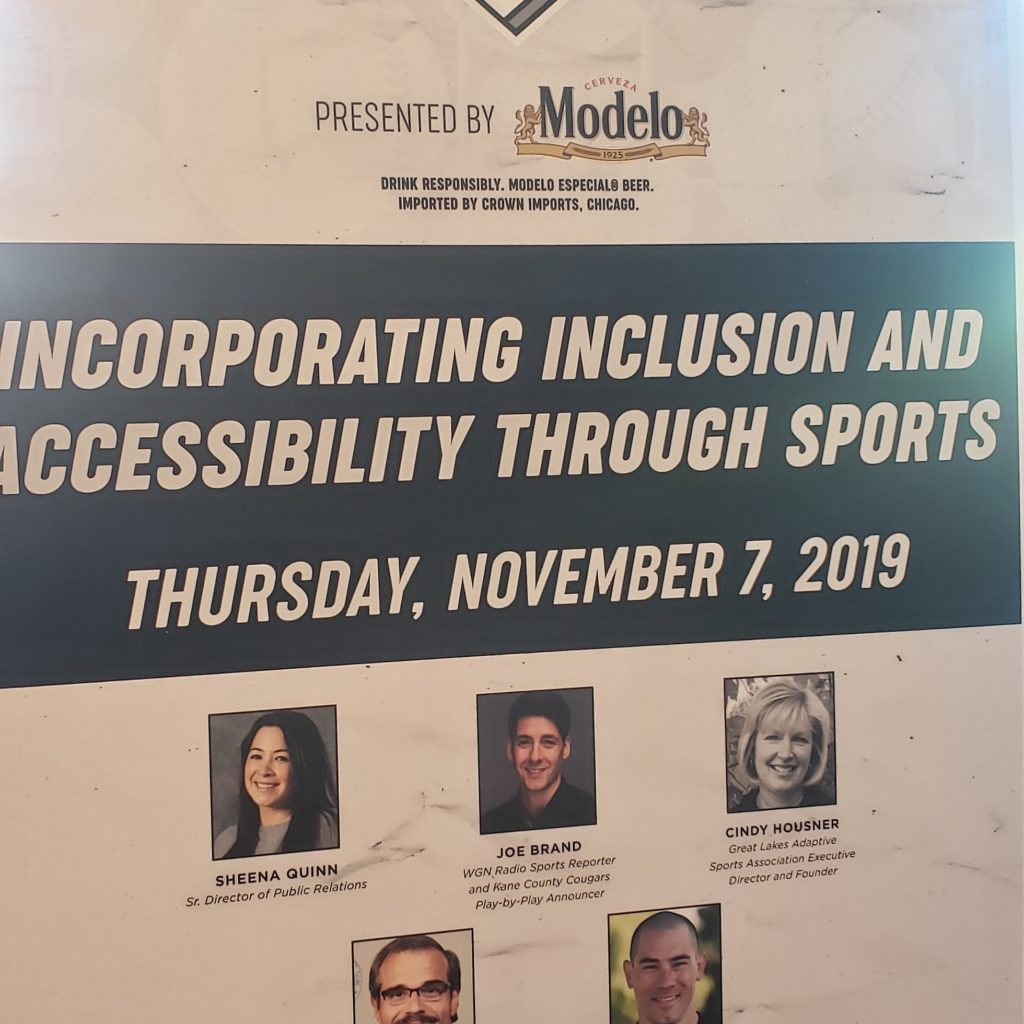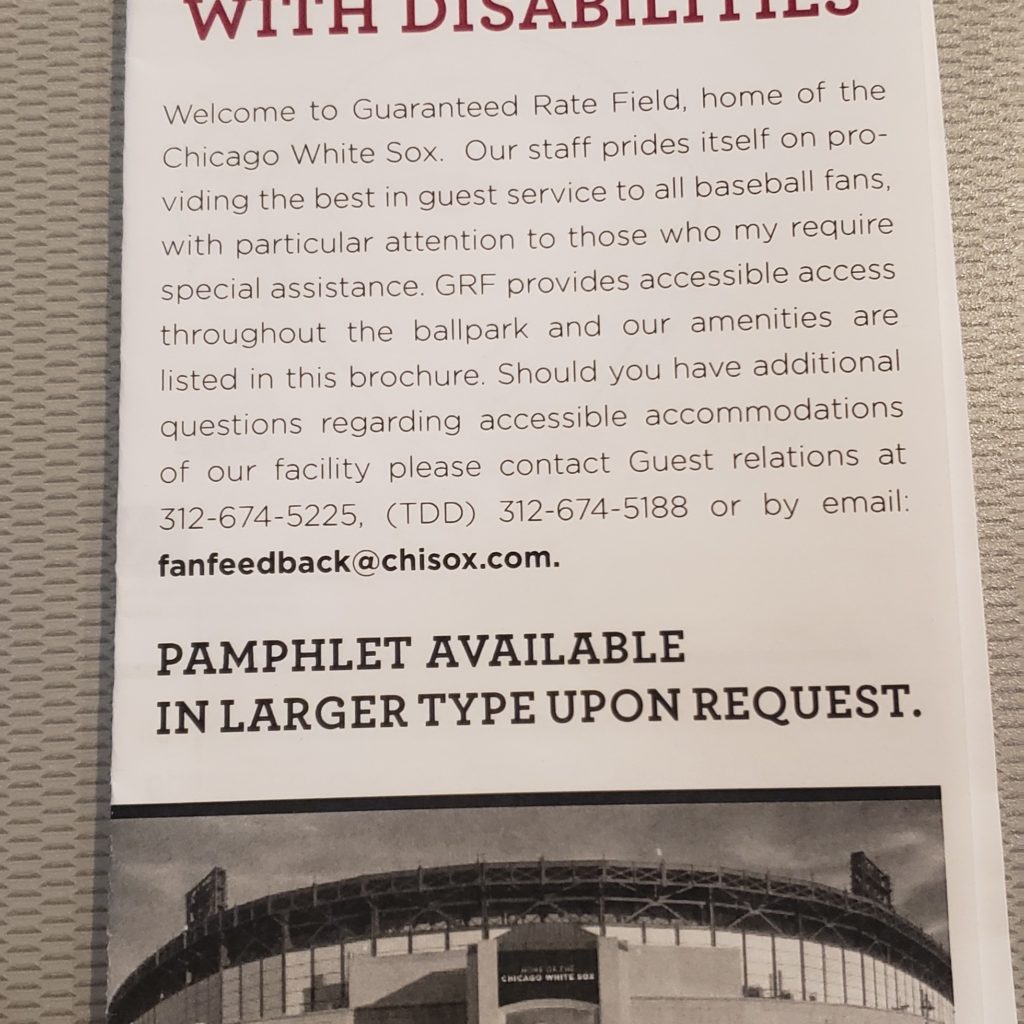
The Chicago White Sox held another in their Game Changers series on November 7, 2019. Titled “Incorporating Inclusion and Accessibility Through Sports”, the panel primarily focused on how to give people with physical disabilities a way to participate and be part of the sports world. Sheena Quinn, the White Sox Senior Director of Public Relations introduced the lineup of panelists, each of whom has an impressive background in the adaptive sports or sports inclusion.
The panel consisted of:
- Moderator—Joe Brand, WGN Radio Sports
- Cindy Housner, Great Lakes Adaptive Sports Association
- Larry Labiak, Chicago Park District Disability Policy Officer
- Daniel Tun, Dare2tri Program Director and Co-founder

The impressive part of this conversation compared to so many that we hear, was that each of the panelists was more eager to tell us how they want to collaborate and work with other organizations. Too frequently in this space, we hear organizations tooting their own horn and telling us only about their accomplishments and not how they want to work with other groups and the public. This panel in particular stressed the important roles of students, educators, families and everyone involved in the sports world. Given the need for adaptive athletes to be housed within existing sports programs and facilities, collaboration and foresight are critical to providing a positive experience for these dedicated athletes.
There are dozens of studies and articles which highlight the important role sports play in our overall development, improving our mental health, as well as maintaining a healthy lifestyle. These factors are no less critical, and arguably more important for adaptive athletes.
Housner focused on how important it is to get the word out through the media. She stressed the benefits of the media exposure from events leading up to Tokyo 2020 and rebranding of United States Olympic and Paralympic Committee. While Housner feels Chicago is a very collaborative environment and community, there are many challenges to overcome. She pointed out how state athletic associations have different standards and rules for athletes with disabilities. She also noted the difficulties in accommodations because very few hotels have double accessible rooms, meaning if you travel with two adaptive athletes together (or an adaptive athlete and a coach or supporter), the hotels are telling one of the guests they are supposed to “sleep on the couch.” She also made a plea for greater involvement and understanding from the medical community, especially in terms of how to teach this community of how to become and stay and physically active.
Tun arrived at the panel coming off Dare2tri’s successful fundraising event last week and carried that momentum into his presentation. He stressed the importance of education and said that the increased profile from events such as the Chicago Marathon were crucial. In response to a question about Chicago’s 2016 Olympic bid, he felt the bid was a turning point to establishing more collaboration in the community. Tun highlighted how geography is a significant barrier because so few adaptive athletes have access to peers or to a sufficient level of competition to make the participation a connection point like it for so many able-bodied athletes in their communities. He gave the example of sled hockey, which is a popular sport, yet still has only two sled hockey teams in the entire state. One of the challenges he highlighted was educating schools on what adaptive equipment might be available in their own community. His closing challenge to the audience was that he wants to see the able-body community doing a better job of reaching out to ask for assistance and getting more people involved with adaptive sports.

Perhaps the most passionate panelist was Labiak, who took every opportunity to share his excitement about all of the opportunities which are available and how we can improve access to adaptive sports. He believes that many people have never heard of adaptive sports and too frequently lump adaptive sports together with events such as Special Olympics, ultimately doing a disservice to both sets of athletes, each of whom face their own challenge. Labiak feels that there are far too few participants in adaptive sports, especially given the populations which we know exist. He wants to see fellow students advocate for their peers because they are closer to the situation than parents or educators or administrators and can help the adaptive athletes get the exposure that they need.
Labiak felt that the 2016 bid was crucial because it helped put the spotlight on issues surrounding disabilities and brought leaders together. Ultimately, he believes that there needs to be more of a focus on awareness, knowledge and promotion. While sometimes parents hold a child back at the outset out of the fear that the child cannot compete, he also knows that ultimately the parents become the sales force and help take over some of the operations and fundraising tasks.
Among the challenges that Labiak sees are the difficulties in modifying old buildings to fit the needs. In new buildings, he continually pushes and advocates to make sure that they use wider gates, wider doors, no center dividers between doors and plenty of accessible lockers and showers. While he has seen a lot of progress over the last 10 years, he also recognizes that we are still facing many challenges. He believes that progress is measured in decades, not in years. He closed with a similar challenge issued by Housner and Tun—the importance of mainstream sports community reaching out an getting more athletes involved in adaptive sports.
Their insight captivated the audience who were treated to a great lunch by the White Sox and despite the frigid temperatures, the bright sunshine made it look like a beautiful day for baseball. I encourage you to reach out to support these impressive organizations and their dedicated athletes!


